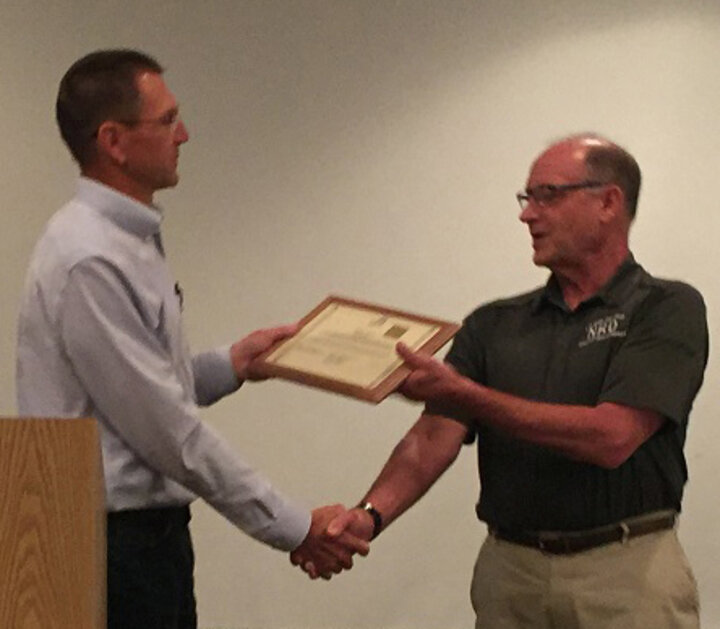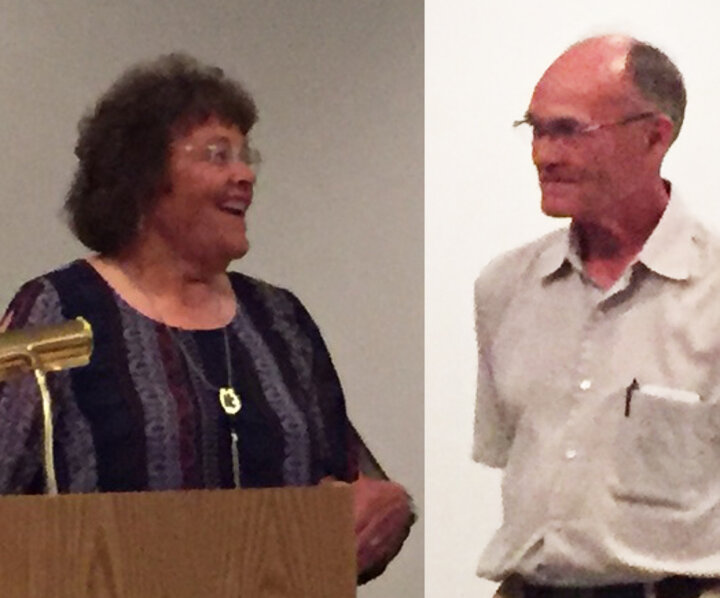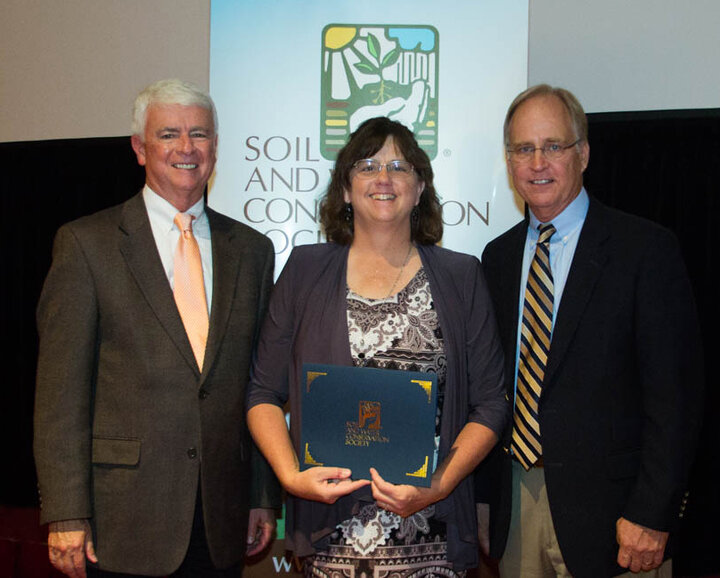
Seven leaders in Nebraska resource conservation are being honored by the Nebraska Chapter of the Soil and Water Conservation Society (SWCS). The society is a nonprofit scientific and educational association dedicated to advancing the science and art of good land use and improvement of natural resources.
Awards and their 2017 recipients are:
Claudia Stevenson, USDA NRCS Resource Conservationist at Grant, was awarded the International SWCS Commendation Award for professional achievement and service to the society at the state level, and accepted the award at the International SWCS Conference held late July in Madison, Wisc. Stevenson was instrumental in establishing Farming Evolution, an annual conference and effort of SWCS and the Nebraska and Colorado NRCS offices. As co-chair for the last four years, Stevenson has been responsible for securing nationally known speakers and planning program details for the annual two-day workshop. Each year an average of 200 people attend the conference with another 300-500 tuning in for conference radio broadcasts. As an SWCS member the last 30 years, Stevenson has worked with multiple programs to provide resource conservation education to all ages. Stevenson also serves as the “At Large” director on the SWCS Nebraska Chapter Board.
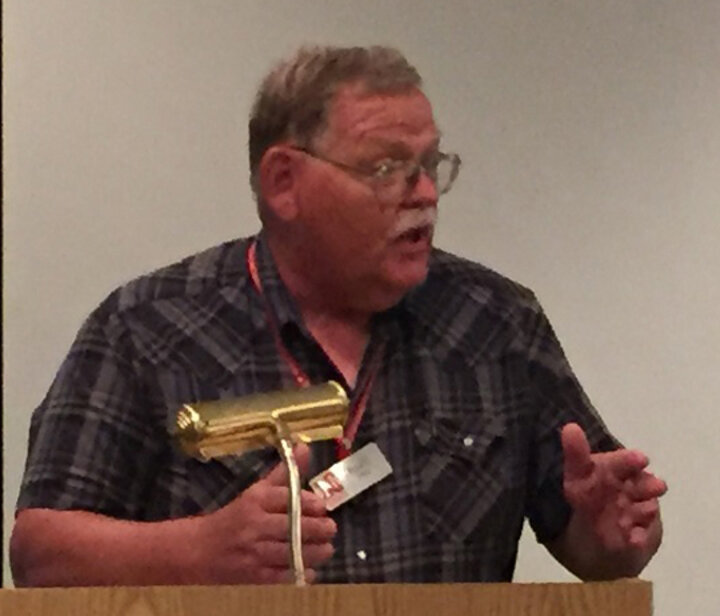
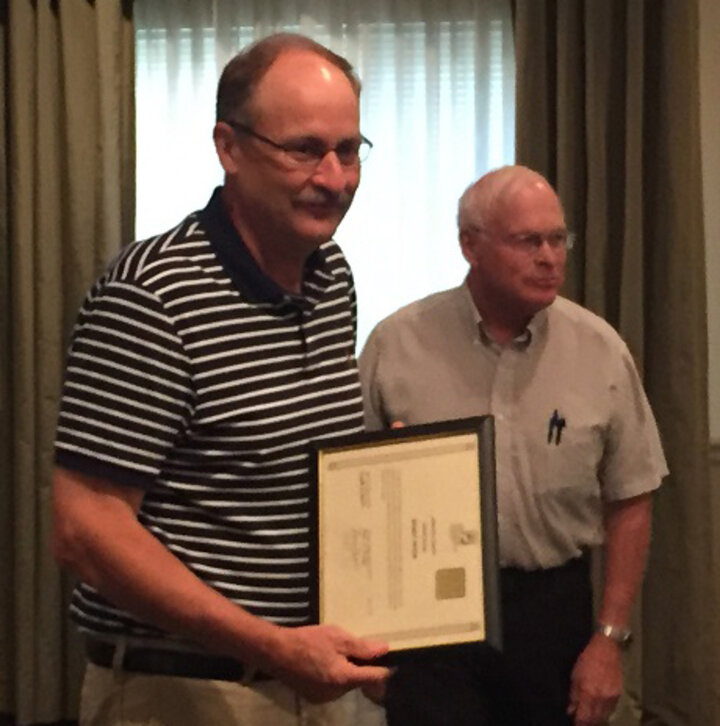
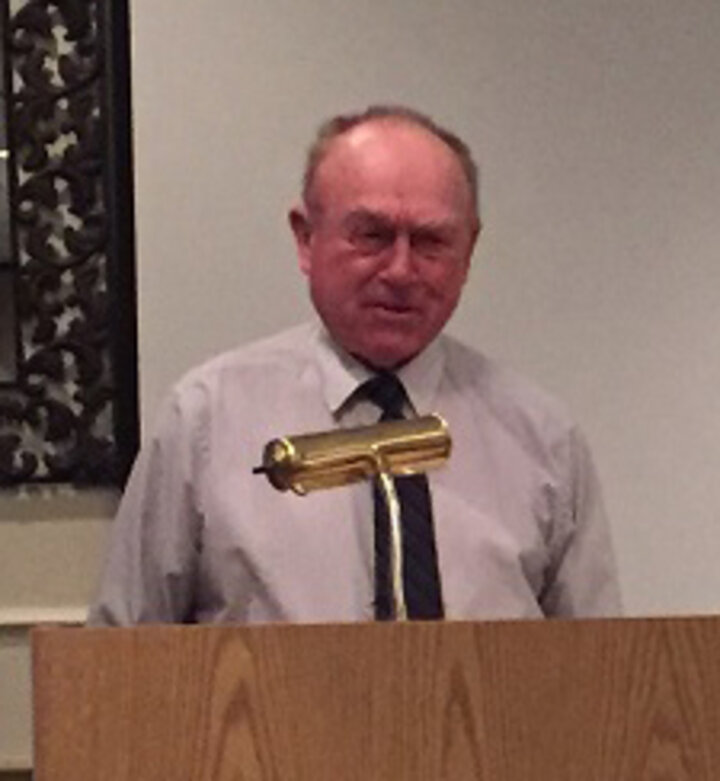
Tom Mountford of Lincoln received the Nebraska SWCS Commendation Award for professional achievement and service to the society at the state level. Mountford has worked at the Little Blue NRD, Nemaha NRD, and the Lower Platte North NRD, where he has been assistant manager for 23 years. He has led involvement with the DEQ 319 program to stop soil erosion and improve water quality in the Wahoo Creek and Shell Creek watersheds, led efforts to obtain federal NRCS funds to develop dams to reduce flood damage, and has been instrumental in a number of community projects and an active partner with conservation work on the local, state, and national levels.
Receiving the 2017 Nebraska SWCS Honor Awards were Nebraska Extension Educators Paul Hay of Beatrice and Randy Pryor of Wilber, and producer Richard Schotte of Bremen, Kansas. These awards recognize non-members for outstanding accomplishments reflecting the society’s objectives.
Paul Hay, University of Nebraska Extension Educator, started his career as an extension educator in Frontier County before moving to Gage County, where he’s been the last 37 years, focusing on cropping systems and development of a strong 4-H program. Hay was a considerable influence in Gage County achieving an 85% no-till adoption rate. His work focuses on soil health, soil conservation, no-till, cover crops, irrigation scheduling, farmland leasing, manure management and improved atrazine use. Hay has worked with industry and producers as well as a coalition of agri-businesses, NRCS, corn growers, and the Nebraska Corn Board to help test and contribute to development of the Field to Market carbon footprint and field efficiency project. He worked with NRCS and the NRD on the Swan Lake restoration project and implementing land treatment for special projects including Swan Lake and Turkey Creek watersheds.
Randy Pryor, University of Nebraska Extension Educator, has been a leader in soil and water conservation educational programs since becoming an extension educator in Saline County 35 years ago. From organizing the first conservation field day and no-till planting field demonstration in 1983 to organizing programs on increasing soil carbon and adding cover crops, Pryor has led educational efforts to help growers shift to conservation-friendly practices. His efforts have also extended to multiple youth programs. The highest concentration of soil carbon contracts through the Chicago CCX exchange occurred in southeast Nebraska because of initial education efforts led by Pryor. Five years ago Pryor worked with the Lower Big Blue NRD to initiate a new cost-share program for the adoption of ET gages and watermark sensors for irrigation management. Now 200 producers are in the program.
Richard Schotte, a producer from Bremen, Kansas and his brother Don realized the importance of adopting soil conservation measures on their farm in the early 1960s, a lesson that he has modeled for the next generation of family farms in southern Nebraska and northern Kansas. Schotte worked with the local soil conservation service to implement waterways and terraces to reduce soil erosion and continues to adopt soil conservation measures, including the adoption of cover crops to help develop soil organic matter and build soil structure. Schotte was instrumental in envisioning and organizing the Horseshoe Creek Watershed District in response to ongoing flood damage to fields, stream banks and bridges. This has led to the construction of many watershed structures, starting with the tile outlet terraces at the top of the drainage. He currently serves on the Marshall County Conservation District Board of Directors.
The Lower Big Blue Natural Resources District in southeast Nebraska is receiving the SWCS 2017 Merit Award for its work to develop flood-control structures and monitor and manage water quality and quantity in the district. The Merit Award recognizes noteworthy conservation activity or products of organizations, agencies, or firms.
Leading district efforts is Dave Clabaugh, who started as a water resources specialist at the NRD in 1987, becoming general manager in 2004. He oversaw completion of the Lower Turkey Creek Flood Control Project, a $10 million project with seven flood-control structures, and work after flooding of the Swan Creek area in 2015, a one in 500-year storm. Following the 2013 drought, the NRD’s Board of Directors worked to update its Groundwater Management Plan, adding a scoring system for all newly proposed wells.
In the past year the NRD installed 40 dedicated monitoring wells to continuously record changes in groundwater levels and provide valuable information on changes in water quantity and quality in the district.
Jim Harder of Gretna is being presented the Staple Award for longstanding leadership and exceptional service contributing to the success of the Nebraska SWCS Chapter. Before retiring in 2007, Harder worked in Cass, Nuckolls, Dawes, Pierce, Furnas and Lancaster county field offices for the Soil Conservation Service/Natural Resources Conservation Service. He continues to promote resource management education in his community and supports the conservation efforts of tenants of his family’s farm partnership.
More information about the Nebraska SWCS Chapter can be found on Facebook and at nebraskaswcs.org.
